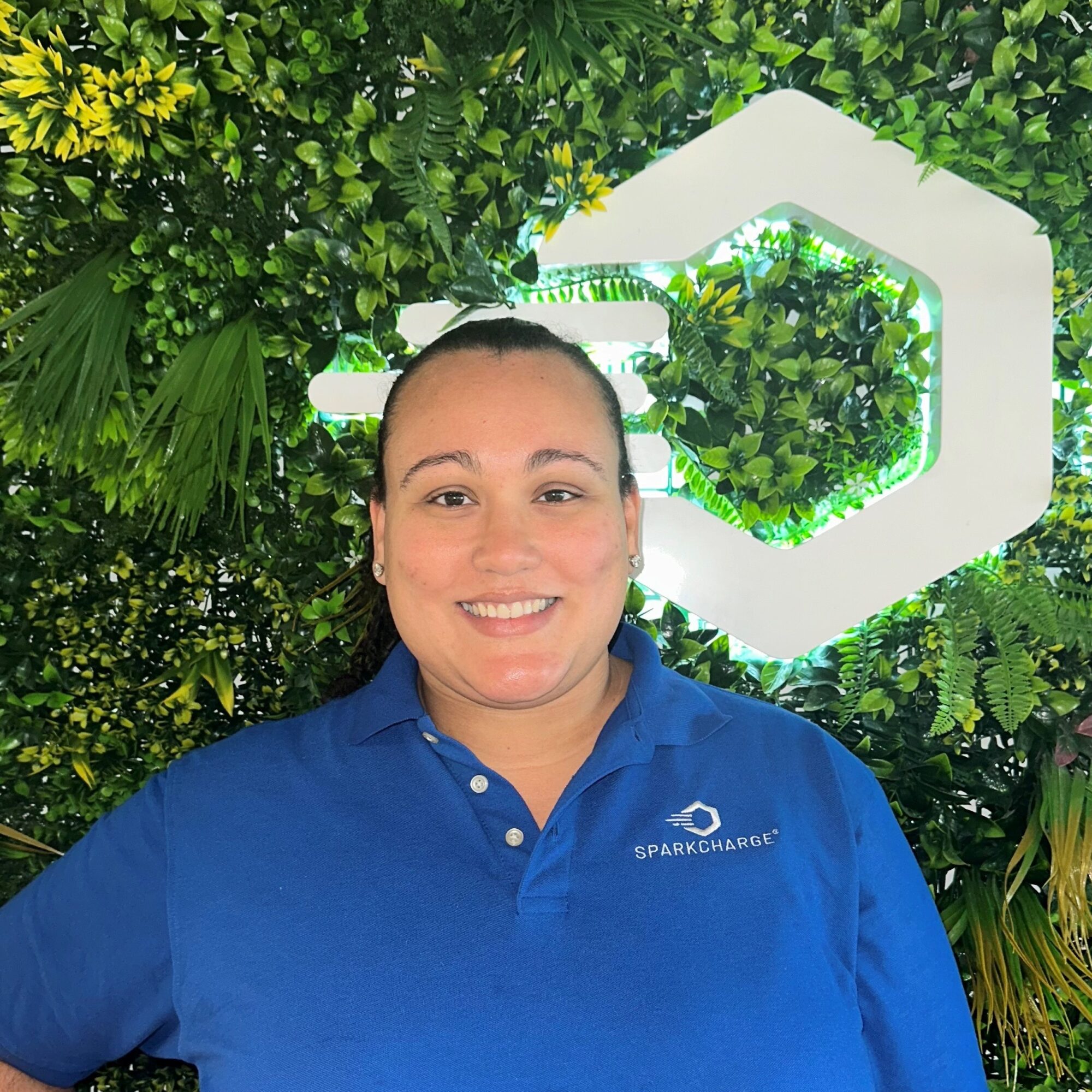
“We are democratizing energy,” says Sama Aviv, an alum of Syracuse University’s Falk College, where she majored in public health. She also received her master’s degree in healthcare policy and management at Boston University, and is now the Program Manager for SparkCharge, the world’s first mobile EV charging network.
At the push of an app button, users can request a charge to be delivered to them. Sama said, “Underrepresented communities are usually left out of the EV charging deployment, so we remove that barrier by bringing the charge to the consumer.”
Sama’s Puerto Rican heritage and compassionate soul is what inspires her to build a better, more inclusive world.
As SparkCharge’s first official employee, Sama has adopted a leadership role within the company since day one. She began working with SparkCharge in college, where she and founder Joshua Aviv would stay up all night 3D printing models, making t-shirts on the kitchen table, and managing the company in Google Sheets. The mentorship of Syracuse University’s Blackstone LaunchPad was an instrumental part of SparkCharge’s success and recently, of Sama’s decision to finally join the company full-time.
“Because it is such a fast-paced environment, I learned a lot very quickly,” Sama explained. Despite coming from a healthcare background, Sama rapidly learned how to collaborate in leading company operations; work as the human resources, marketing, and finance departments; develop policies for potential situations and learn about engineering, supply chains and unit economics from her knowledgeable team members.
Sama knows that there is always a better, more efficient way of doing things, especially as a startup, and she is always seeking to identify innovative approaches to improve.
Sama described SparkCharge as a testament of grit and a labor of love. It is also about never giving up. She poses the question, “When one door closes, how do we open another door?”
Sama noted that things in the startup world don’t always go according to plan, which is why resilience is so important. She recalled a time when the company had just rented a space for an event, but there was no power, so she had to think quickly to devise a creative solution. There was also a time when SparkCharge was ready to move into their new office, but it was flooded. Rather than throwing their hands in the air, the team searched for a new place to work.
Challenges aside, Sama noticed that this is the kind of job where there can be a big deadline the next day, like a product launch, and all hands are on deck.
“Everyone is willing to help you out, unlike other traditional jobs,” she said.
Sama knows that by building a team that believes in your mission, you will be more successful. She has been part of building that culture at SparkCharge, as she leads by example.
Recently, the company hosted SparkDay in-person for the first time. Over 200 people came to their new headquarter offices on Assembly Row in Somerville MA to experience their latest product launch. SparkCharge launched a new V3 battery and V3 hybrid battery in preparation for an expansion into three new cities—Boston, Sacramento, and San Diego. SparkCharge has already taken root in 12 cities, mostly in California.
The goal is to offer SparkCharge services all over the U.S.—eventually the world—and to increase EV adoption in underrepresented communities by doing so.
When SparkCharge opens in new markets, Sama ensures that they are hiring people from the underrepresented communities they serve. The employees can increase their knowledge and skills relating to EV batteries through a job that transforms their life. They can better support their families and even afford to go on vacations, which would have been more difficult with a typical hourly job.
Sama advised aspiring entrepreneurs to be patient: “Sometimes you think you can accomplish a goal in 12 months. In reality, it could take you 2-3 years. But when you see a vision, stick with it, and bring it to life.”
Story by Sasha Temerte ’23, LaunchPad Global Fellow; photo supplied